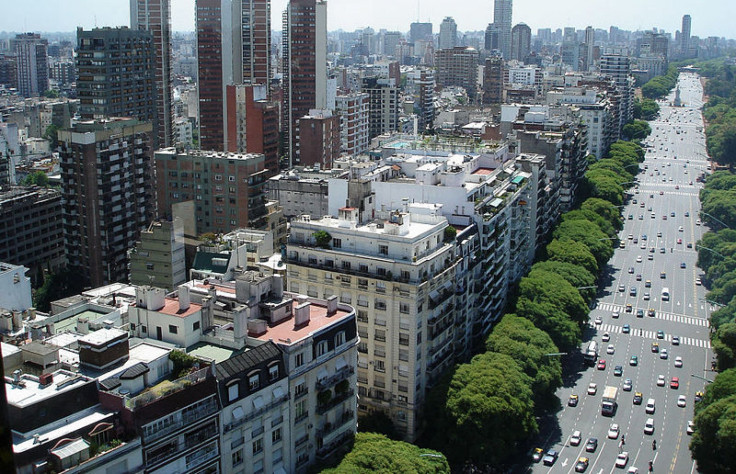Argentina’s Economy Grows 7.8 Percent; Agreement With Chevron And Good Harvest Help

As the saying goes, it will happen when you least expect it. The Argentinian economy grew 7.8 percent in May, adding up to a growth in the first quarter of this year of 4.9 percent. That's a strong acceleration from the pace of growth in 2012, when the economy had grown by 1.9 percent, its slowest pace in three years, according to government data.
President Cristina Fernández de Kirchner said on Wednesday she was very pleased with the numbers. The president remarked that “for Argentina, to receive $1.2 billion extra [from an initial investment by oil giant Chevron], which we had not taken into account, has been very positive for our financial balance.”
Fernández de Kirchner emphasized the fact that an agreement between Chevron Corp. (NYSE:CVX) and state oil company YPF (NYSE:YPF) to use some of Argentina’s oil fields had a lot to do with the growth. The deal, signed last week following a crisis when the shares in the oil fields held by former YPF partner Repsol (MCE:REP) were seized by the government, was harshly criticized by the opposition, and the indigenous population rebelled against it, as reported by local newspaper La Nación.
“They were all saying that we did not attract foreign investment, that nobody trusted Argentina,” she said. “Now we manage to bring one of the biggest oil corporations in the world, and it is all criticism. They are bringing $1 billion -- I don’t understand. Did they just want YPF to fail?” said Kirchner.
Minister for Agriculture Norberto Yauhar also pointed out that Argentina had the “largest harvest of its history” this year and tried to calm the public over the recent rise in the price of bread: “Wheat is controlled. The problem was that producers took it and hid it, to increase prices.”
This recent economic growth spurt contrasts with what most news organizations, like Spanish newspaper El País, reported last week about the Argentinian economy plummeting. Articles mentioned the spike in the price of bread and the state of meat exports. For the first time in its history, Argentina, one of the world's biggest meat producers, exported less than neighbors Uruguay, Paraguay and Brazil.
The word “inflation” has been taboo in Fernández de Kirchner’s speeches for the past few months. The official inflation rate is about 10 percent a year, but economists -- and the International Monetary Fund -- believe it's a lot higher, possibly as much as 25 percent. Faced with a currency whose value is dropping, Argentinians flock to the U.S. dollar, but the government limits the amount of local pesos that can be exchanged for dollars. Last Wednesday, however, the president did talk about the rising exchange rate of the “blue dollar" -- American currency bought illegaly in the black market. The blue dollar had reached an exchange rate of 10 pesos to the dollar, as opposed to the usual 6.5. Last month, the government managed to bring it down to 8, but this week it has gone over 9 again.
Argentina’s Central Bank expects the economy to grow at 4.6 percent in 2013.
© Copyright IBTimes 2024. All rights reserved.





















